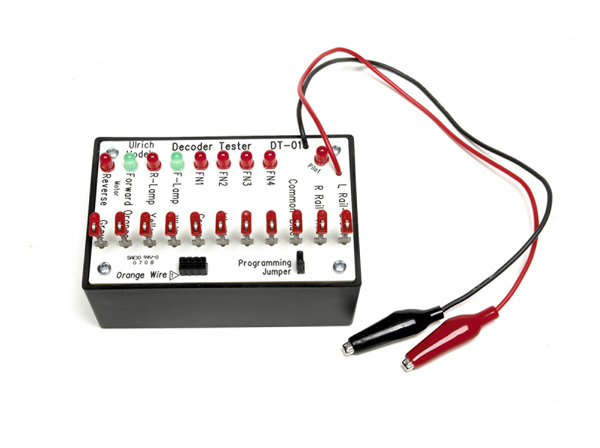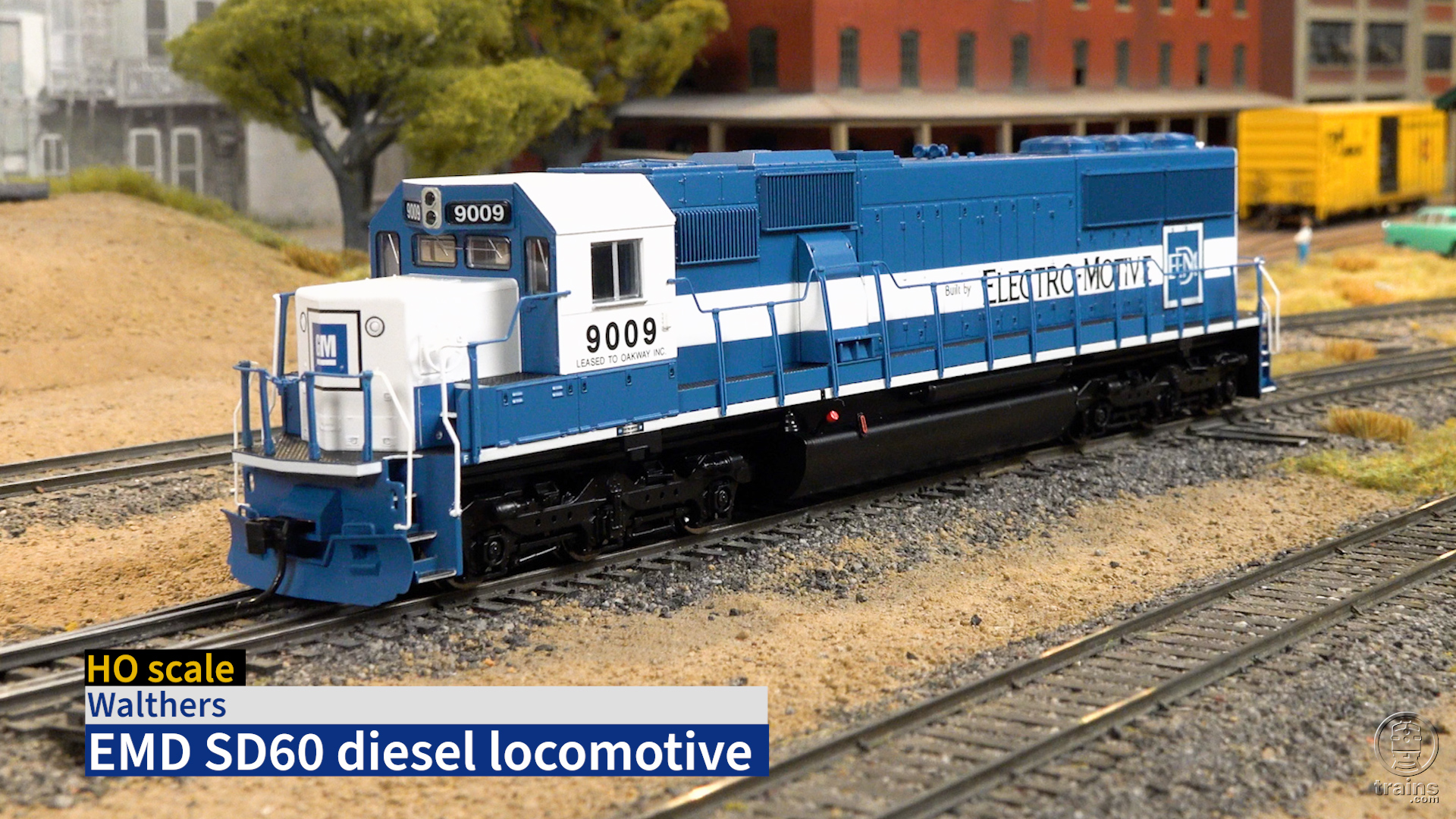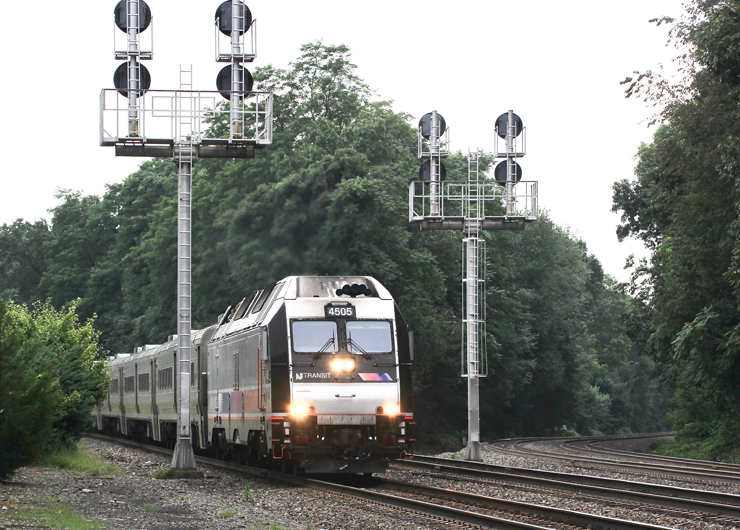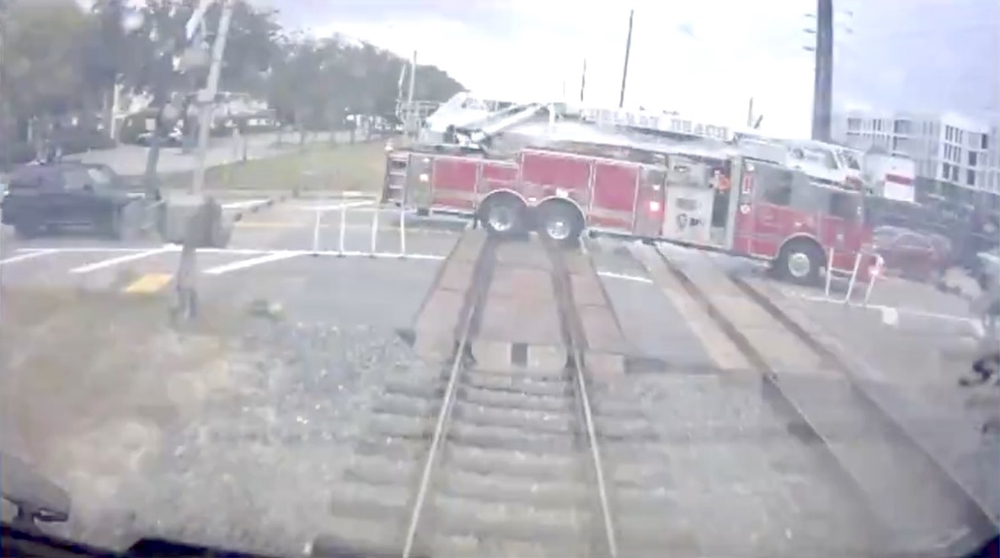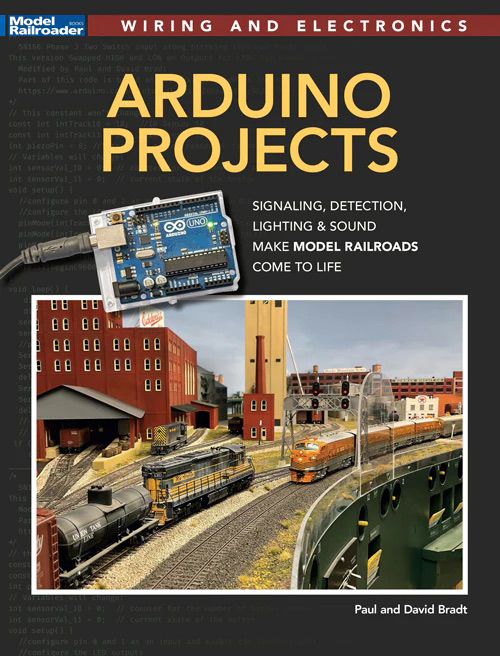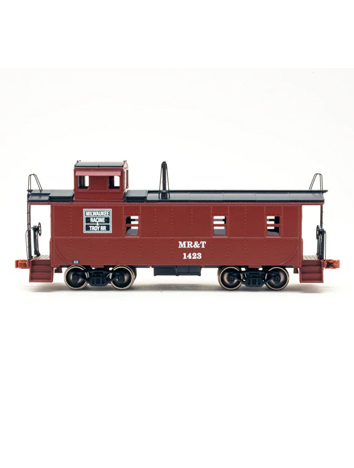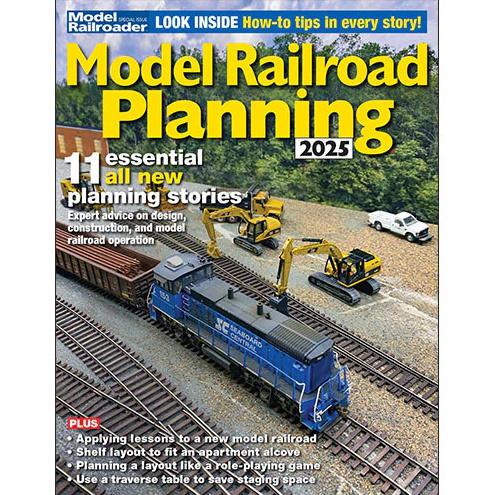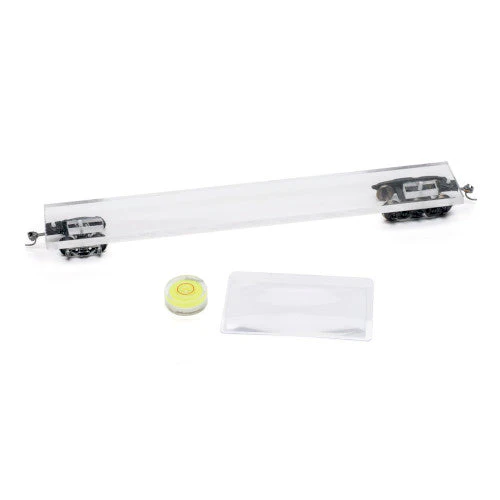The Ulrich decoder tester measures 11/2″ x 2 1/2″ x 4″ and has two leads that you connect to the track of your Digital Command Control-equipped layout or programming track. I connected the leads to a test track, which was controlled by an MRC Prodigy Advance DCC system.
The top of the unit has nine indicator lamps. The lamp marked “PILOT” lights when the tester is receiving track power. Other lamps indicate if the decoder’s light and motor outputs, both forward and reverse, are operating correctly.
A socket on top of the Ulrich tester is used to connect decoders that have an eight-pin plug. There are also 10 spring clips used to test decoders that have a wire harness without a plug. Each spring clip is labeled for the color of its corresponding decoder wire. A 9-pin adapter harness for decoders with 9-pin plugs and a decoder clip harness, used to test board-replacement decoders that aren’t pre-wired, are available separately.
With the power off on our DCC system, I used the clip harness to connect a QSI Revolution-A sound decoder to the tester. The Ulrich tester doesn’t have a built-in speaker. To hear the decoder’s sound effects and make sure they all functioned properly, I first wired a 1/2″-diameter speaker to the decoder.
The wires on the harness are color coded per NMRA RP-9.1.1. Following the decoder’s wiring diagram, I fastened the spring-loaded clip at the end of each wire to its corresponding connection on the decoder. Then I used the MRC Prodigy cab to trigger the QSI decoder’s functions, including the horn, coupler sound, and bell. The diesel RPM sounds increased or decreased as I operated the throttle. I changed several of the decoder’s configuration variables, including its long address.
If you’re planning to upgrade your locomotives to DCC, the Ulrich Models decoder tester is a useful tool to have on your workbench.
Price: $39.95; JST 9-pin adapter harness, $6.95; decoder clip harness, $19.95
Manufacturer
Ulrich Models
3133 Indian Road
Boulder, CO 80301
www.ulrichmodels.biz





